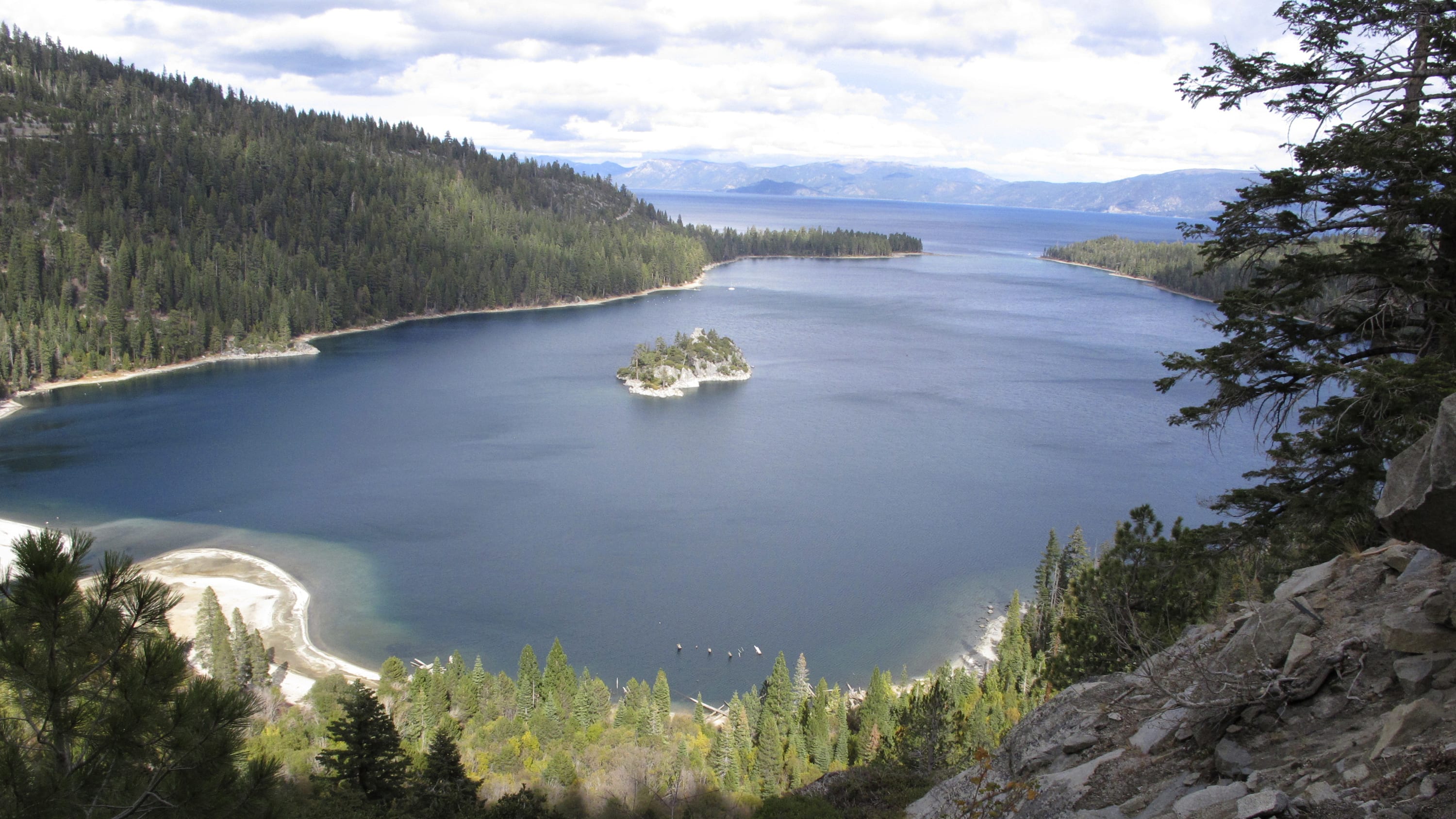Massive storm brings Lake Tahoe's water levels back above natural rim


A free daily email with the biggest news stories of the day – and the best features from TheWeek.com
You are now subscribed
Your newsletter sign-up was successful
Heavy rain and snow fell in Northern California over the weekend — so much that Lake Tahoe's water levels are back above the natural rim.
Water levels at the Tahoe City dam rose almost 6 inches in 24 hours, the U.S. Geological Survey said, and more than 24 inches of snow fell in the mountains around the Tahoe Basin. This was welcome news, as last week, Lake Tahoe's water levels dipped about an inch below the natural rim of the basin. When the levels plummet below the rim, the lake is no longer connected to the Truckee River, its only outlet. Drought, fueled by climate change, is causing the levels to drop more often and earlier than normal.
While the rainfall was definitely needed, it's not enough to solve Lake Tahoe's water troubles, experts say. Because the lake was only an inch below the rim, the massive storm was able to raise the water levels quickly, but they are nowhere near where they should be, SFGate reports — Lake Tahoe is considered full when water levels are roughly 6 feet above the natural rim.
The Week
Escape your echo chamber. Get the facts behind the news, plus analysis from multiple perspectives.

Sign up for The Week's Free Newsletters
From our morning news briefing to a weekly Good News Newsletter, get the best of The Week delivered directly to your inbox.
From our morning news briefing to a weekly Good News Newsletter, get the best of The Week delivered directly to your inbox.
For Lake Tahoe to get into a good position, scientists say this winter needs to have above-average rain and snow fall, with the snowpack not melting until after spring. Without this, the lake may drop below its natural rim earlier next year.
While this weekend's storm was significant, it isn't going to make much of a dent in the drought hitting the Western U.S. Nevada's Lake Mead is a major water source for California, and Bill Patzert, a retired climate scientist with NASA's Jet Propulsion Lab, told the Los Angeles Times that he estimates it would take 17 years of above-normal rainfall and snowpack to bring the depleted lake back to where it should be. "There's no quick fix to the drought," Patzert said.
A free daily email with the biggest news stories of the day – and the best features from TheWeek.com
Catherine Garcia has worked as a senior writer at The Week since 2014. Her writing and reporting have appeared in Entertainment Weekly, The New York Times, Wirecutter, NBC News and "The Book of Jezebel," among others. She's a graduate of the University of Redlands and the Columbia University Graduate School of Journalism.
-
 The environmental cost of GLP-1s
The environmental cost of GLP-1sThe explainer Producing the drugs is a dirty process
-
 Greenland’s capital becomes ground zero for the country’s diplomatic straits
Greenland’s capital becomes ground zero for the country’s diplomatic straitsIN THE SPOTLIGHT A flurry of new consular activity in Nuuk shows how important Greenland has become to Europeans’ anxiety about American imperialism
-
 ‘This is something that happens all too often’
‘This is something that happens all too often’Instant Opinion Opinion, comment and editorials of the day
-
 The plan to wall off the ‘Doomsday’ glacier
The plan to wall off the ‘Doomsday’ glacierUnder the Radar Massive barrier could ‘slow the rate of ice loss’ from Thwaites Glacier, whose total collapse would have devastating consequences
-
 Can the UK take any more rain?
Can the UK take any more rain?Today’s Big Question An Atlantic jet stream is ‘stuck’ over British skies, leading to ‘biblical’ downpours and more than 40 consecutive days of rain in some areas
-
 As temperatures rise, US incomes fall
As temperatures rise, US incomes fallUnder the radar Elevated temperatures are capable of affecting the entire economy
-
 The world is entering an ‘era of water bankruptcy’
The world is entering an ‘era of water bankruptcy’The explainer Water might soon be more valuable than gold
-
 Climate change could lead to a reptile ‘sexpocalypse’
Climate change could lead to a reptile ‘sexpocalypse’Under the radar The gender gap has hit the animal kingdom
-
 The former largest iceberg is turning blue. It’s a bad sign.
The former largest iceberg is turning blue. It’s a bad sign.Under the radar It is quickly melting away
-
 How drones detected a deadly threat to Arctic whales
How drones detected a deadly threat to Arctic whalesUnder the radar Monitoring the sea in the air
-
 ‘Jumping genes’: how polar bears are rewiring their DNA to survive the warming Arctic
‘Jumping genes’: how polar bears are rewiring their DNA to survive the warming ArcticUnder the radar The species is adapting to warmer temperatures
